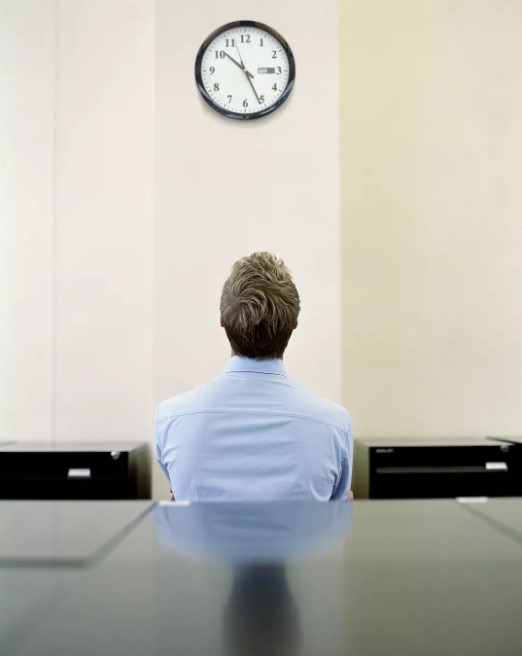There is a notable debate underway between employee generations about the controversial work habit of arriving late to the office.
Gen Z employees think it's ok to be 5-10 minutes late. But older workers feel this is not acceptable at all.

Gen Z employees' work habit of arriving late that older generations strongly disapprove of
According to a recent survey, nearly half of employees aged 16 to 26 believe that arriving at work 5-10 minutes late is perfectly acceptable.
However, this view is not shared by older generations in the workplace.

Only 39% of millennial employees (aged 27-42) find this acceptable, a number that drops to 26% for Gen X (aged 43-58) and a mere 20% for Baby Boomers (59+).
In fact, 7 out of 10 Baby Boomers completely refuse to tolerate any tardiness, with 69% agreeing with this refusion.

In contrast, just 21% of Gen Z employees agree with this strict stance. They tend to value flexibility in work hours and see a work-life balance as more important than rigid punctuality.
However, the views of Gen Z are not entirely consistent when 60% of them also find it irritating when colleagues arrive late for meetings.

This suggests there is still some disconnect in their attitudes towards tardiness.
While most young people find a little lateness acceptable, older generations typically prefer to arrive early. The best compromise may be for everyone to strive to be on time, not too early or too late.
On social media, many Gen Z users also share their opinions on the matter.
I managed a team of people who made medical appointments for patients. Our phone lines opened at 09:00. They needed to be sat at their desks with computers on at 09:00, one user said.
You work for someone. The hours are agreed. The money is too. Just turn up to work on time if that’s the way the contract is written and come across dependable and trustworthy. It’s not your job. It’s their job, your opportunity, the second user explained.
If you won't let people clock in early, then do not expect them to be on time, the third user said.
I can excuse that if something happened like your car broke down or the bus was running behind schedule, but there's no excuse for being late because you were just dicking around and couldn't be bothered to plan to arrive on time, another wrote.
I'm not Gen Z but if I'm late, I'm late. My job is not my life, it's just a way to support my life and if they can't be understanding about being late every now and again, then I'll cross that bridge when it comes. Life is too short to freak out over 5 minutes of tardiness, someone defended Gen Z's work habit of tardiness.
Previously, Gen Z workers believed they should be hired for their personality rather than their productivity.
They claim that their wit, humor, and playfulness bring an energy that older workers seem to lack.
A new term called 'personality hire' has been created to describe an individual's role in a corporate setting, incorporating humor, banter, and fun to create a positive atmosphere, usually to compensate for a lack of hard skills or productivity.

Some Gen Z employees believe their job is to "bring the energy" and make the office more fun, rather than just make other people's jobs easier.
They advise slowly integrating Gen Z slang into the workplace to help employees embrace the "personality hire" role and "stay playful at work".
On social media, many online users also agree that the 'personality hire' is critical to the 'social equilibrium of the workplace" and that "only when the workplace is filled with energy can productivity be enhanced.'






